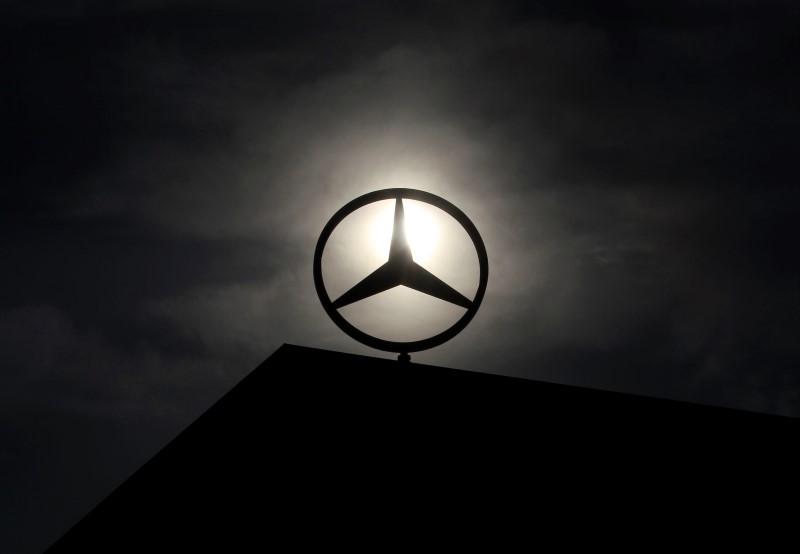By Gergely Szakacs and Edward Taylor
FRANKFURT/BUDAPEST (Reuters) - Daimler AG (DE:DAIGn) said on Friday it would build a new factory in Hungary to make Mercedes-Benz cars, giving a major boost to the local economy and raising the competitive pressure on the luxury automaker's established plants in Germany.
Daimler will spend 1 billion euros (£844.2 million) by 2020 to expand its site at Kecskemet, central Hungary, where it will add 2,500 jobs, it said in a statement.
The new factory will be the first plant capable of producing both compact cars and larger limousines, Mercedes-Benz said, adding flexibility to the carmaker's production network, which has depended mainly on Germany and China to produce limousines.
Mercedes-Benz is running its factories at full capacity and struggling to expand its existing production sites in Germany after a strategy shift to give cars a more upmarket appeal gained traction with customers.
Hungary, which relies on the auto industry for a third of its industrial output, is likely to see a 3 percent export boost and a 0.4 percent increase in economic output once the factory is at full capacity, Foreign Minister Peter Szijjarto said.
Szijjarto told a press conference the new plant would almost double the capacity of the current site to 330,000 vehicles compared with the 180,000 manufactured last year. Mercedes-Benz made 1.87 million cars in 2015.
Szijjarto put Daimler's decision to expand in Hungary partly down to the country's economic policy, adding the government had also offered incentives worth 12.9 billion forints (£34.9 million).
Other carmakers in Hungary include Mercedes-Benz rival Audi (DE:NSUG), which has invested more than 8 billion euros since 1993, Japan's Suzuki (T:7269) and General Motors (N:GM).
So far, Mercedes-Benz has had production lines making either rear-wheel drive models such as the E-Class or C-Class or front-wheel drive models, like the A-Class, B-Class or CLA. Kecskemet has only built smaller vehicles.
A Mercedes-Benz spokesman said it was too early to say which rear-wheel drive models would be built at the new factory.
German labour unions have sought guarantees to retain production of higher-margin models in their home plants.
"The Mercedes-Benz product portfolio currently consists of 32 models," Daimler said. "In the near future, the company will offer 40 models... (and) gradually electrify all Mercedes-Benz passenger car model series."

The company will be able to produce alternative power train systems in Hungary, it added.